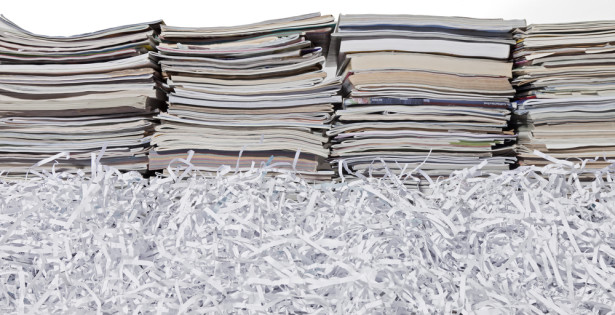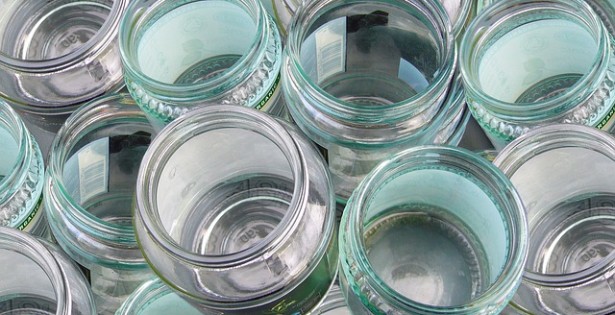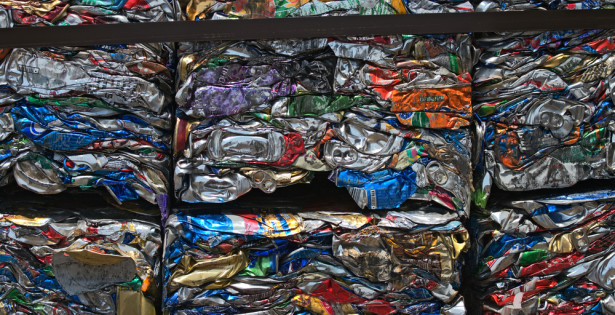Recycling is an extremely important part of our future. It is a fascinating subject and it makes a huge amount of financial sense for businesses. Often, however, kids understand it far better & anything we can do to help them see how fascinating & helpful recycling is should be encouraged.
We’ve put together a list of recycling facts for kids, pulled from a variety of places. This list will be added to on a regular basis so that it’s a useful resource for kids and schools.
Entire Recycling have a number of initiatives with UK schools and like to encourage dialogue between recycling businesses & schools. If you’d like to know more, please get in touch. For now, however, here are some fun recycling facts for kids:

The Recycling Loop
The symbol above is the recycling loop or recycling symbol. It is made of three arrows pointing to each other and forming a Möbius strip (this is symbolic of an unending loop).
The symbol was designed by Gary Anderson, a 23-year old college student at the University of Southern California, who won a competition to raise awareness of environmental issues.
The three elements of the logo stand signify the three elements of recycling or the 3 Rs: Reduce, reuse, recycle.

Paper Recycling Facts
Paper Recycling Facts for the UK
- 70% less energy is required to recycle paper compared with making it from raw materials
- One tonne of paper from recycled pulp saves:
– 17 trees
– 3 cubic yards of landfill space
– 7,000 gallons of water
– 4,200 kWh
– 390 gallons of oil
– prevents pounds of air pollutants - Recycled paper produces 73% less air pollution than if it was made from raw materials
- 12.5 million tonnes of paper and cardboard are used annually in the UK
- The average person in the UK gets through 38kg of newspapers per year
- It takes 24 trees to make 1 ton of newspaper
- The amount of waste paper buried each year would fill 103,448 double decker buses
Paper & America
- It has been estimated that the average American uses seven trees a year in tree products including paper and wood
- Environmental experts estimate that an area the size of two football fields was being destroyed from the rainforests every second
- Over 73 percent of all newspapers are recovered for recycling. About 33 percent of this is used to make newsprint the rest is used to make paperboard, tissue, or insulation
- A little more than 48 percent of all office paper is recycled. This is used to make writing papers, paperboard, tissue, and insulation

Plastic Recycling Facts
Plastic Recycling Facts for the UK
- All types of plastic are recyclable
- The advantages of recycling plastic are:
– The conservation of non-renewable fossil fuels
– Plastic production uses 8% of the world’s oil production, 4% as feedstock and 4% during manufacture
– Reduced consumption of energy
– Reduced amounts of solid waste going to landfill
– Reduced emissions of carbon-dioxide (CO2), nitrogen-oxide (NO) and sulphur-dioxide (SO2) - The world’s annual consumption of plastic materials has increased from around 5 million tonnes in the 1950s to nearly 100 million tonnes today (WRAP)
- One tonne of plastics is equivalent to 20,000 two litre drinks bottles or 120,000 carrier bags (LINPAC )
- The amount of plastic waste generated annually in the UK is estimated to be nearly 5 million tonnes (WRAP)
- The UK currently recycles approximately 24% of plastic while a European country like Germany recycles 44% (British Plastic Federation)
- Plastic makes up 9% of average household waste (WRAP)
- All branches of Tesco and Sainsbury’s offer a plastic bag recycling service
- A report on the production of carrier bags made from recycled rather than virgin polythene concluded that the use of recycled plastic resulted in the following environmental benefits:
– reduction of energy consumption by two-thirds
– production of only a third of the sulphur dioxide and half of the nitrous oxide
– reduction of water usage by nearly 90%
– reduction of carbon dioxide generation by two-and-a-half times - 1.8 tonnes of oil are saved for every tonne of recycled polythene produced
- Over 50%% of litter found on UK beaches in 2008 was plastic litter, an increase of more than 120% since 1994
- 75% of post consumer plastic waste is sent to landfill
- Around 45 billion individual items, approximately one million tonnes of domestic plastics, are disposed of every year in the UK (WRAP)
- Every year an estimated 4.5 billion plastic bags are given away by UK supermarkets
- Incinerating 10,000 tons of waste creates 1 job, landfilling the same amount creates 6 jobs while recycling the same 10,000 tons creates 36 jobs
- Plastic bags and other plastic rubbish thrown into the ocean kill as many as 1,000,000 sea creatures every year
- Plastics can take up to 400 years to break down in a landfill
- If you lined up all the polystyrene foam cups made in just 1 day they would circle the earth
- In one year along, approximately 684,000 tonnes of CO2 emissions were saved by recycling the UK’s plastics, the equivalent of taking 216,000 cars off the road (BPF)
- There are about 1,000 milk jugs and other bottles in a recycled plastic park bench (RECOUP)
- Recycling just one plastic bottle saves enough energy to power a 60W light bulb for six hours (Recoup)
Plastic & America
- Enough plastic is produced in the United States each year to shrink wrap Texas
- Approximately 88 percent of the energy is saved when plastic is made from plastic rather than from the raw materials of gas and oil

Glass Recycling Facts
Glass Recycling Facts for the UK
- Each UK family uses an average of 500 glass bottles and jars annually
- The largest glass furnace produces over 1 million glass bottles and jars per day
- Glass is 100% recyclable and can be used again and again
- Glass that is thrown away and ends up in landfills and will never decompose
- 1 recycled glass bottle would save enough energy to power a computer for 25 minutes
- We use over six billion glass bottles and jars each year. It would take over three and a half thousand years to sing six billion green bottles
- For every ton of recycled glass turned into new products, 315 kilograms of extra carbon dioxide that would have been released during the creation of new glass are saved
- Recycling one glass bottle can save 20% air pollution and 50% less water pollution than making new bottle from raw materials

Aluminium Recycling Facts
Aluminium Recycling Facts for the UK
- 24 million tonnes of aluminium is produced annually, 51,000 tonnes of which ends up as packaging in the UK
- If all cans in the UK were recycled, we would need 14 million fewer dustbins
- £36,000,000 worth of aluminium is thrown away each year
- It can take just six weeks for an aluminium can to be recycled, they are 100% recyclable and can be recycled forever
- 1 recycled aluminium can would save enough energy to power a television for 3 hours
- Recycling old aluminium uses only 5% of the energy used to make new aluminium
- Every day 80 million food and drink cans end up in landfill
Aluminium & America
- Americans call aluminium ‘aluminum’. We don’t know why
- Americans throw away enough aluminium every month to rebuild their entire commercial air fleet
- Americans throw out enough iron and steel to continuously supply all the auto makers in the entire nation
- Americans use 100 million tin and steel cans each day

Wood Recycling Facts
Wood Recycling Facts for the UK
- The number of trees felled In one day globally would cover Barbados.
- Each year, 750,000 tonnes of wood are thrown away – only 300,000 tonnes are recycled
- Each year, one million trees are chopped down to make 44 million British Telephone Directories, most of which are never used
Household Recycling Facts
Household Recycling Facts for the UK
- The largest lake in the Britain could be filled with rubbish from the UK in 8 months
- On average, 16% of the money you spend on a product pays for the packaging, which ultimately ends up as rubbish
- Almost half of the contents of our dustbins could potentially be recycled
- We could compost an additional 30% of vegetable peelings and other organic waste that we throw away
- Despite the potential to recycle or compost around 68% of our waste, we are only recycling or composting 15%
- Making compost from kitchen and garden waste can reduce 50% of all refuse going to landfill
- The unreleased energy contained in the average dustbin each year could power a television for 5,000 hours
- In 1 hour we produce enough waste in the UK to fill the Albert Hall (Waste watch)
- In 1 day there would be enough waste to fill Trafalgar Square to the top of Nelson’s Column (Waste watch)
- In 1 year there would be enough waste to fill dustbins stretching from the Earth to the Moon (Waste watch)
- Recycled materials can return to the marketplace in as little as 30 days
- The cost of the average Christmas lunch is estimated at £14 per person but the ingredients could have flown 84,612 miles producing the same amount of greenhouse gas from planes as 50,000 three-bedroom semis in a year.
- In 2004, the UK sent 744 million Christmas cards; if they were all recycled, it would have saved 248,000 trees
- In 2005, only 82 million cards were recycled but it diverted 1,630 tonnes of rubbish from landfill sites
- In 2001 only 1.2 million of the 7.5 million Christmas tress bought were recycled; the rest created enough rubbish to fill the Albert Hall in London three times
General Recycling Facts
- Every year in the UK we use 13 billion steel cans which if you placed them end to end, would stretch to the moon – three times
- Every year the average dustbin contains enough unrealised energy for 500 baths, 3500 showers or 5,000 hours of television
- On average every person in the UK throws away their own body weight in rubbish every 7 weeks
- In less than 2 hours the UK produces enough waste to fill the Albert Hall
- Over Christmas as much as 83 km2 of wrapping paper will end up in UK rubbish bins, enough to cover an area larger than Guernsey
- UK uses over six million toner cartridges annually – approximately 50% end up in landfill sites
- 60 million fluorescent tubes are sold in the UK every year; very few are recycled – One tube can pollute 30.000 litres of water beyond a safe level of drinking
- The firework display held on the Eve of the Millennium created more dioxins in fifteen minutes than an Energy from Waste incinerator would produce in 120 years
Resources
This list has been compiled from our facts and from a list of extraordinary resources online. Thanks to the following:
- http://www.rethinkeurope.co.uk/Kids-Facts-About-Recycling
- http://www.sciencekids.co.nz/sciencefacts/recycling.html
- http://www.runnymede.gov.uk/portal/site/recycling/Kids_learn_recycling/
- http://www.fun-facts.org.uk/earth/recycling.htm
- http://www.zerowasteamerica.org/Statistics.htm
- http://www.visy.com.au/
- http://earth911.com/
- http://www.ecoforce.co.uk/green-facts.htm







